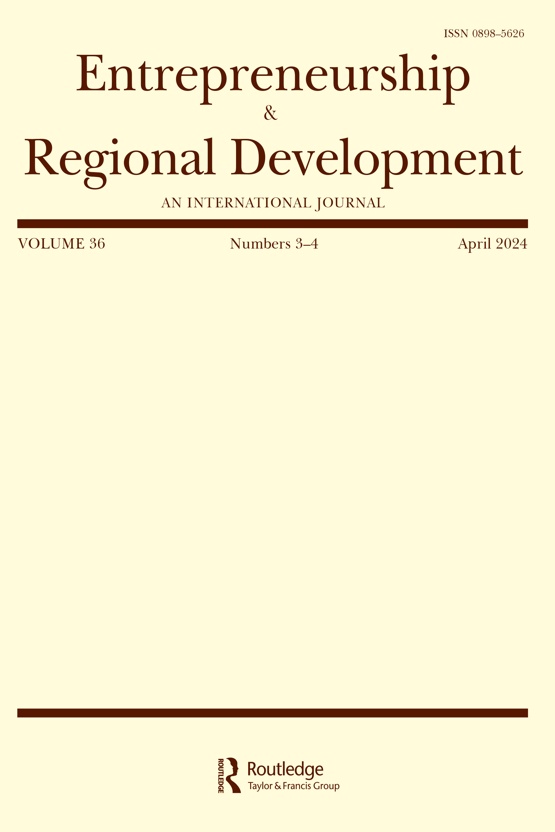Of resistance to patriarchy and occupation through a virtual bazaar: an institutional theory critique of the emancipatory potential of Palestinian women’s digital entrepreneurship
IF 3.6
1区 经济学
Q2 BUSINESS
引用次数: 0
Abstract
ABSTRACT This study explores how institutional contexts and digital technologies influence women’s digital entrepreneurship and emancipation potential in the conflict-laden, Arab country-specific context of Palestine. Drawing on insights from Institutional Theory and emancipation literature, we capitalize on in-depth, semi-structured online interviews with Palestinian women entrepreneurs. Accordingly, we present empirical evidence demonstrating that while digital technologies enabled Palestinian women to launch their enterprises, the unsupportive institutional contexts confined them to home-based, feminine enterprises and subjected them to a toll of additional challenges, health issues and hostility. Our findings challenge the claim that digital entrepreneurship emancipates women by showcasing the context-specific nature of emancipation. This paper advances entrepreneurship research by demonstrating how Arab women’s digital entrepreneurship unfolds at the intersection between emancipatory enablers and unique, conflict-laden regulatory, normative, and cultural-cognitive institutional pillars.通过虚拟集市抵抗父权制和占领:对巴勒斯坦妇女数字创业的解放潜力的制度理论批判
本研究探讨了制度背景和数字技术如何影响冲突缠身的巴勒斯坦阿拉伯国家特定背景下妇女的数字创业和解放潜力。根据制度理论和解放文献的见解,我们利用对巴勒斯坦女企业家的深入,半结构化的在线访谈。因此,我们提出的经验证据表明,虽然数字技术使巴勒斯坦妇女能够创办自己的企业,但缺乏支持的体制环境将她们限制在以家庭为基础的女性企业中,并使她们遭受额外的挑战、健康问题和敌意。我们的研究结果通过展示解放的具体环境性质,挑战了数字创业解放女性的说法。本文通过展示阿拉伯妇女的数字创业如何在解放的推动者与独特的、充满冲突的监管、规范和文化认知的制度支柱之间的交叉点展开,推进了创业研究。
本文章由计算机程序翻译,如有差异,请以英文原文为准。
求助全文
约1分钟内获得全文
求助全文
来源期刊
CiteScore
7.90
自引率
10.70%
发文量
52
期刊介绍:
Entrepreneurship and Regional Development is unique in that it addresses the central factors in economic development - entrepreneurial vitality and innovation - as local and regional phenomena. It provides a multi-disciplinary forum for researchers and practitioners in the field of entrepreneurship and small firm development and for those studying and developing the local and regional context in which entrepreneurs emerge, innovate and establish the new economic activities which drive economic growth and create new economic wealth and employment. The Journal focuses on the diverse and complex characteristics of local and regional economies which lead to entrepreneurial vitality and endow the large and small firms within them with international competitiveness.

 求助内容:
求助内容: 应助结果提醒方式:
应助结果提醒方式:


